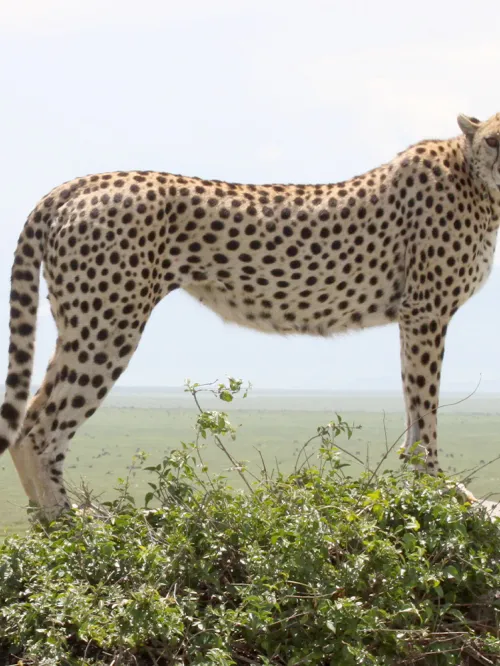Our work in Africa
Humane World for Animals tackles the root causes of animal cruelty and suffering to create permanent change. We make change at scale, advocating for policy change at all levels of government and working with companies so that they can be kinder to animals their businesses impact. We work in partnership with communities, bringing diverse expertise to the most complex issues, and doing it all with a compassionate and welcoming approach.
Our impact
We envision a world without animal cruelty, where humans and animals coexist peacefully. In Africa, we work to promote non-lethal solutions to human-wildlife conflicts, improve the lives of animals raised for food, end the illegal wildlife and captive big cat trade, advocate for a more plant-forward food system, increase access to spay/neuter services and primary veterinary care for companion animals, ending cosmetics animal testing and helping animals in disaster situations.
outside Kruger National Park have received an immunocontraceptive vaccine
have a permanent home at our sanctuary in Liberia
in South Africa have been sterilized through our Healthy Pets, Healthier Communities initiative
Latest News
Animal Care Expo
The Humane Society of the United States/Humane Society International’s Animal Care Expo combines a world-class educational and networking conference with a full-scale international trade show on all things related to dog and cat care and population management. The goal of this annual
What Sets HSI Apart?
Humane Society International believes that compassion for animals is a natural human condition regardless of culture, economic circumstance, or political system. By recognizing and celebrating the bond between animals and people throughout the world, we can start to break down the barriers
Keeping Dolphins Safe
By Sarah Stewart During the 1980s, U.S. consumers let their voice be heard in support of dolphins. They would not buy tuna that was caught using a fishing method that intentionally chased and captured dolphins. This intentional setting on dolphins was not
Seals and Fisheries Interactions
“The collapse of the cod stocks was due to over-fishing. It had nothing to do with the environment and nothing to do with seals.”—Ransom Myers, former Canadian Department of Fisheries and Oceans scientist When European explorers first arrived off the east coast
Whales in Trouble
Whales face increasing threats: Low reproductive rates: Whales have naturally low reproductive rates, making many species extremely vulnerable to increasing pressure from whaling. Chemical pollution: Modern-day contaminants flowing into all our oceans are literally polluting whales' tissues. Some whale die-offs and strandings
A Look at Whaling and the International Whaling Commission
Pre-industrial whaling, conducted from the 12th century through 1868, was a means of subsistence and local commerce for various cultures. The hunts were conducted using sailing ships, small boats, and hand-thrown weapons. Whale meat was used for nutrition in some cultures, while
Corporate Social Responsibility in the Indian Food Retail Industry
Animal welfare concerns are at the cutting edge of the global food retail industry. As a result of European consumers' outrage about the conditions in which laying hens are kept, barren battery cages were be banned in the European Union beginning in
Help Farm Animals in India
Rapidly increasing egg and meat consumption in India has led to the expansion of industrial animal production facilities, or factory farms. A typical egg or chicken meat factory farm houses thousands of birds in a single shed. Several sheds may be located
Working to End Government Support of Bullfighting in Mexico
Many Mexican citizens are not aware that the government uses public funds to subsidize and promote the bullfighting industry. When they learn about this, a strong majority object. A recent poll found that 88 percent do not think it is right for
Help us end animal cruelty
Start saving lives today by making a one-time gift—or protect animals worldwide all year long with a monthly contribution.
